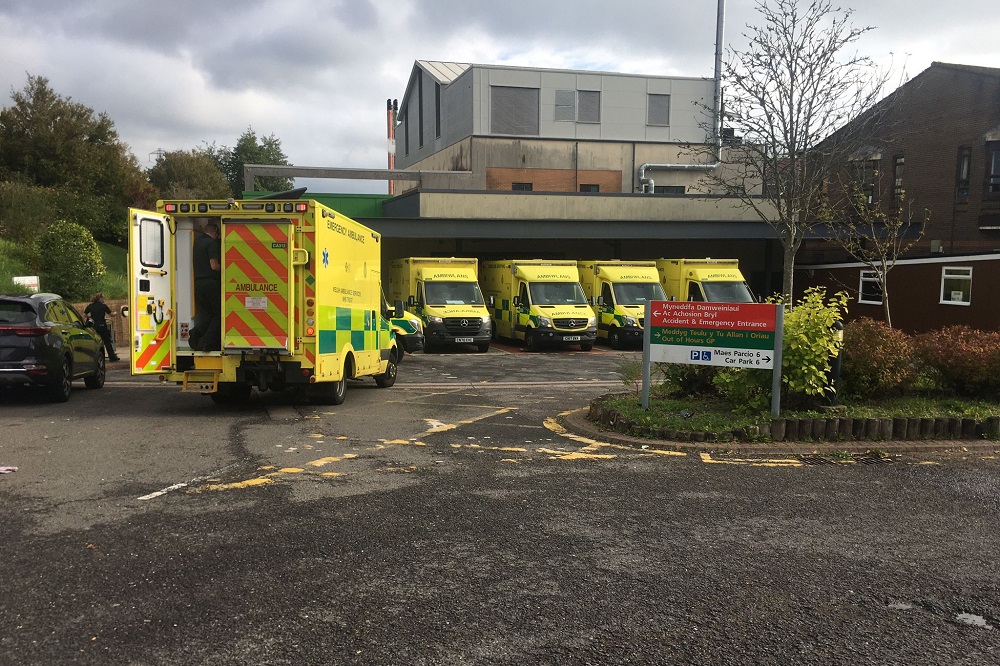Over 700 patients have died due to delays in Welsh emergency departments

Latest figures released by the Welsh Government show that in 2021 over 700 patients have died due to delays in Welsh hospital emergency departments (ED).
Data for October reveals waiting times have deteriorated for the seventh consecutive month and that the 4-hour target performance target is at an all time low of 56%, while the 8-hour waits are the highest on record.
One in seven of the 85,115 patients attending Welsh EDs waited over 12 hours, and this continued deterioration has led to hundreds of avoidable deaths.
A new report, “Crowding and its consequences” by the Royal College of Emergency Medicine (RCEM), reveals that so far this year, 709 patients of those who stayed in an ED for 8-12 hours in Wales have died because of crowding and long stays.
Public Health Scotland data shows that there have been with 303 excess deaths in Scotland and the 4-hour ED performance target hit lows of 75.4% in September.
The report states that excess deaths can be linked to delays in emergency departments, and points to data from NHS England which revealed that “one-in-67 patients staying in the ED between 8-12 hours come to excess harm.”
Dangerous
Vice President of the RCEM Wales, Dr Suresh Pillai said: “The data once again show a worrying further deterioration in performance.
“The urgent and emergency care system in Wales is facing a crisis and we are only just entering winter.
“Patient safety is at risk. We must do all we can to ensure that we continue to provide effective and safe urgent and emergency care.”
“The findings of the Royal College’s report into crowding and patient harm are appalling. Crowding and long stays in Emergency Departments have always been dangerous and posed a threat to patient safety and we have consistently expressed our concern about these unconscionable practices.
“But now we can see in real terms the avoidable harm long waits cause patients. 709 patients in Wales, in 2021 alone, have died as a direct result of crowding and long stays.
“These deaths were preventable; the government, Boards and NHS leaders must understand and act now to ensure that the current crisis does not deepen and lead to more avoidable excess deaths.”
Impact
Other parts of the UK show similar deterioration, with September data showing only “64% of patients admitted, transferred, or discharged within four hours in English Type 1 Eds,” which are defined as “a consultant led 24-hour service with full resuscitation facilities and designated accommodation for the reception of accident and emergency patients.”
In Northern Ireland, ED performance figures for July to September show that four-hour performance sunk to 47% in August, while 12-hour waits increased for the seventh consecutive month.
Other factors are impacted by crowding and delays, with longer in-patient stays, delayed ambulance handover, increased likelihood of medical error as well as putting staff at increased risk of aggression, litigation, and mental and physical ill health.
The report states that crowding is directly related to bed capacity withing the hospital system, as well as staffing levels and discharge procedures.
Support our Nation today
For the price of a cup of coffee a month you can help us create an independent, not-for-profit, national news service for the people of Wales, by the people of Wales.







No one is really held accountable. All we get are the same old “lessons learned” platitudes and the other prescripted guff that politicians and bureaucrats love to fall back on.